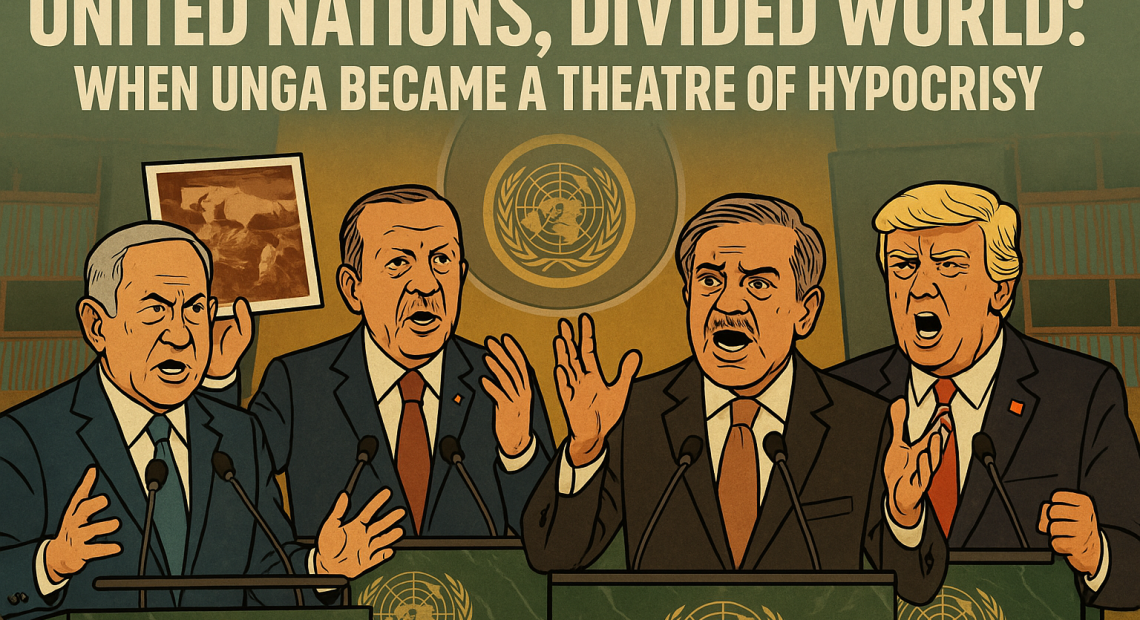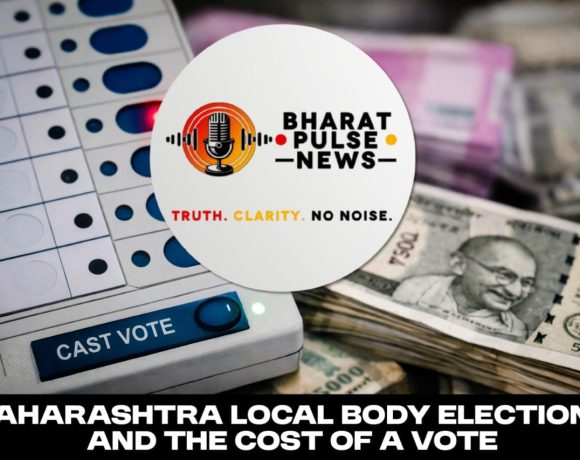
United Nations, Divided World: When UNGA Became a Theatre of Hypocrisy
The 80th UN General Assembly was meant to be the world’s grand stage for diplomacy and cooperation, but what unfolded was closer to a travelling circus. Leaders arrived not with solutions but with scripts written for domestic applause. The world is facing urgent crises — from Gaza’s devastation to Russia’s invasion of Ukraine, from Pakistan’s relentless cross-border terrorism to America’s tariff wars — yet UNGA became a spectacle of chest-thumping, blame games, and self-serving monologues.
Benjamin Netanyahu, the master of defiance, stood tall in New York and spoke of sovereignty as if that word could erase the images of bombed hospitals and displaced families in Gaza. His speech wasn’t diplomacy; it was a sales pitch for militarism, wrapped in self-righteousness. If this is international law by Israel’s definition, then Geneva Conventions might as well be museum artifacts.
Recep Tayyip Erdoğan played his usual role as the fiery preacher. He waved pictures of Gaza to accuse Israel of genocide, conveniently forgetting his own government’s brutal campaigns against Kurds and the dismantling of dissent at home. And as always, he couldn’t resist dragging Kashmir into the conversation — selective outrage served on an international platter, while his own democratic backsliding is ignored.
Then came Shehbaz Sharif, Pakistan’s Prime Minister, who dutifully recited the script of victimhood. With theatrical lamentations, he called India extremist, while the world knows his country is the breeding ground of global terrorism. His words were as hollow as Pakistan’s economy, collapsing under its own weight. India’s reply was sharp: no degree of drama can conceal the facts. But in truth, Sharif had already achieved what he wanted — free publicity at the world’s expense.
Donald Trump, back at the UNGA podium, proved again that America’s domestic politics never stay at home. His speech was less about global vision and more about trade wars, tariffs, and soundbites for his base. It felt less like a statesman addressing the world and more like a campaign rally transplanted to New York. For allies and rivals alike, the message was clear: the U.S. will remain inward-looking under Trump, and the UN is just another stage prop in his reality show.
Russia, meanwhile, tried the role of moral guardian, chastising Israel for Gaza while continuing its bloody invasion of Ukraine. If irony could speak, it would have drowned out the Russian delegation. Moscow demanding restraint from others is like a burglar lecturing the police on law and order.
Amid this circus, a few sane voices did try to cut through. Finland reminded the assembly that the U.S. veto has crippled any accountability for Israel. Australia and other smaller nations called for peace and reform. But in a hall dominated by theatrical performers, reason was reduced to whispers.
India’s External Affairs Minister S. Jaishankar struck back at Pakistan, branding it the “epicentre of global terrorism” and pointing to the Pahalgam attack as evidence. He didn’t spare the UN either, asking pointedly: “Where has the UN made a difference?” He spoke of Security Council reform and India’s willingness to shoulder responsibility. It was a sharp, unapologetic intervention, though it too veered into counter-punching theatrics more than new solutions.
When the lights dimmed and the speeches ended, the UNGA left behind a bitter truth: an institution created to prevent wars has become a stage where leaders rehearse them rhetorically. Hypocrisy is now the lingua franca of the Assembly. Unless reforms take root, this forum will remain what it looked like this year — a theatre of hypocrisy in a divided world.


















